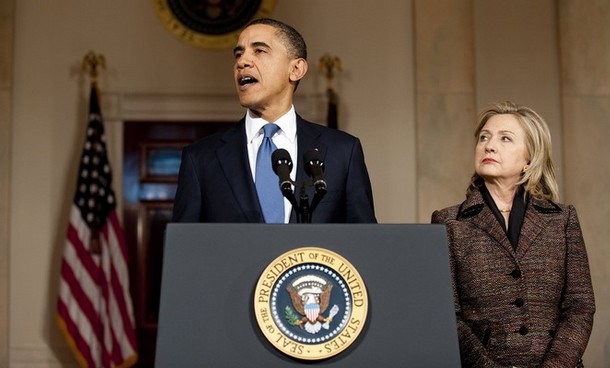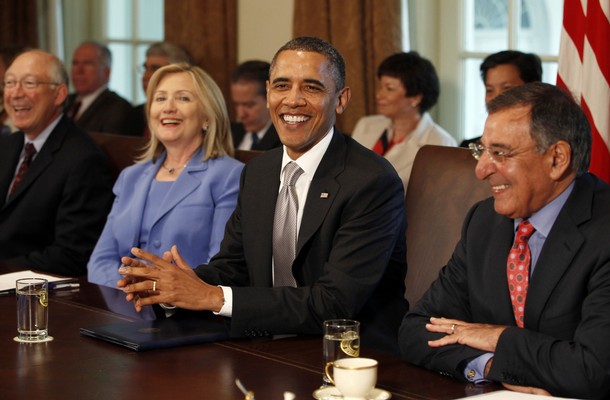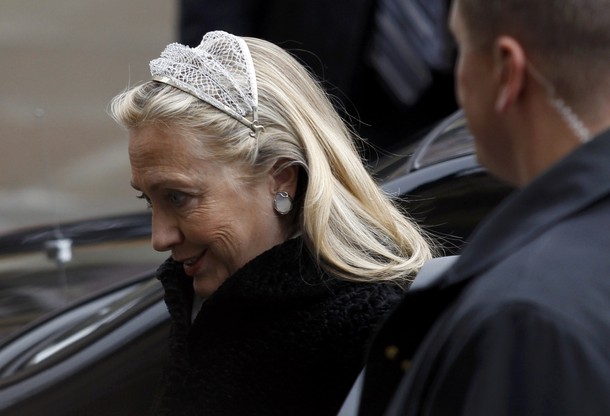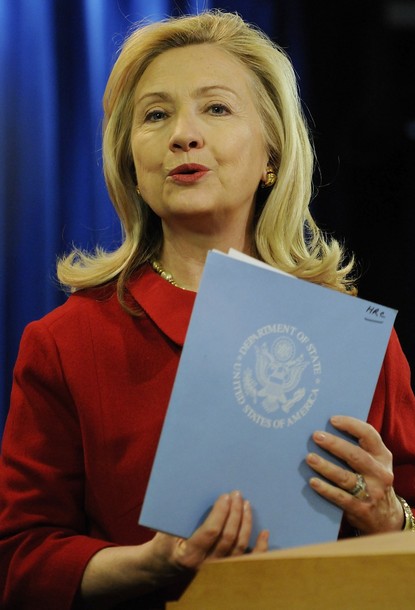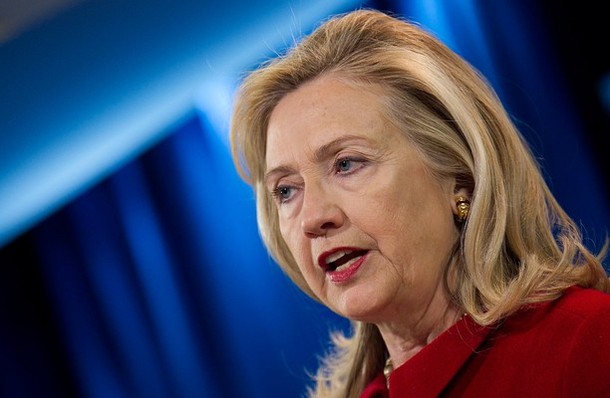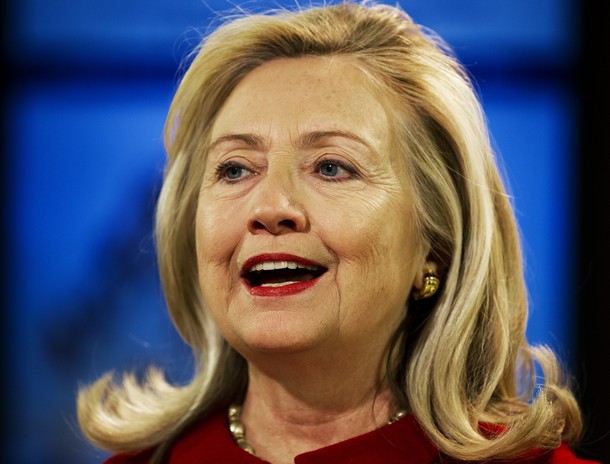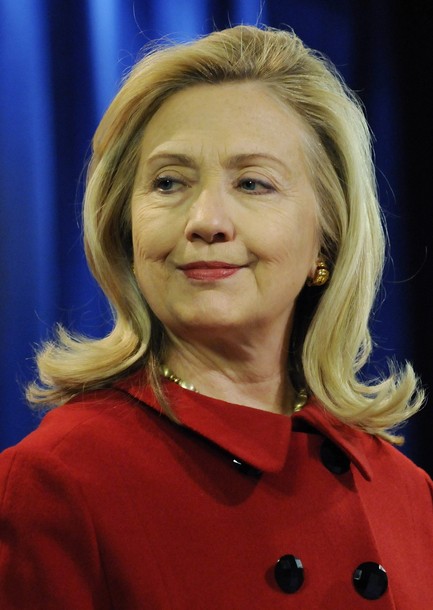Bill and Hillary Clinton were named together to the Forbes list of most powerful people. Mme. Secretary resurfaced, after a brief period of mourning, to deliver an address at the Congressional Coalition on Adoption Institute’s (CCAI) The Way Forward Project Summit and the keynote address at the National Democratic Institute’s 2011 Democracy Awards Dinner on November 8. She also delivered a speech, “Creating an AIDS-Free Generation, ” at the National Institutes of Health and named Ellen DeGeneres as Special Envoy for Global AIDS Awareness. Ellen was honored and said she would go look up the word "envoy."
Mme. Secretary was in the air again the next day for Hawaii where the U.S. was hosting an APEC Ministerial Summit. At the East West Center she delivered a major address, "America’s Pacific Century." Mme. Secretary is known for her great sense of humor, and I personally, simply love her laugh, so it was a treat for all when, during a photo-op a scantily clad torch bearer ran behind the scene. Her reaction was priceless. Adorable!
Next she was wheels down in Manila under very heavy security. Aboard the USS Fitzgerald, with Philippine Secretary for Foreign Affairs Albert del Rosario, she signed the Manila Declaration. President Aquino awarded her the Order of Lakandula. Then she was wheels up for Bangkok where she met with PM Yingluck Shinawatra. She visited an evacuation center for flood victims there before departing for Bali and ASEAN. In Bali, she did a flfurry of interviews with American network TV anchors and attended the ASEAN gala dinner looking like a princess in a beautiful red print silk. Breathtaking!
On the 20th, an op-ed in WSJ appeared that was different from the previous calls for Mme. Secretary to run in 2012. It was the first salvo of the Caddell-Schoen effort that continues to escalate as I write.
She was home for Thanksgiving and a short rest. Back at the State Department, on the 28th, she hosted a U.S. and European Union meeting on energy with Secretary of Energy Steven Chu, E.U, High Rep Catherine Ashton and Gunther Oettinger, E. U. Commissioner of Energy. She then participated in a high level U.S. – E.U. Summit at the White House. Later in the day, she was wheels up for Asia again.
On the 29th in Busan Mme. Secretary delivered the Keynote at the Opening Session of the Fourth High-Level Forum on Aid Effectiveness as well as remarks at the Special Session on Gender.
She ended November making history. Touching down in Burma, she was the first US Secretary of State to visit there since John Foster Dulles 60 years ago when Hillary and I were little girls and we liked Ike because you pretty much couldn't help it! Overwhelming!
Speeches: Keynote Address at the National Democratic Institute’s 2011 Democracy Awards Dinner, The Way Forward Project Summit, “Creating an AIDS-Free Generation,” America’s Pacific Century, ASEAN Business and Investment Summit, Millennium Challenge Corporation Signing Ceremony, Keynote at the Opening Session of the Fourth High-Level Forum on Aid Effectiveness.
Travel: Hawaii, the Philippines, Thailand, Indonesia, Korea, Burma.


